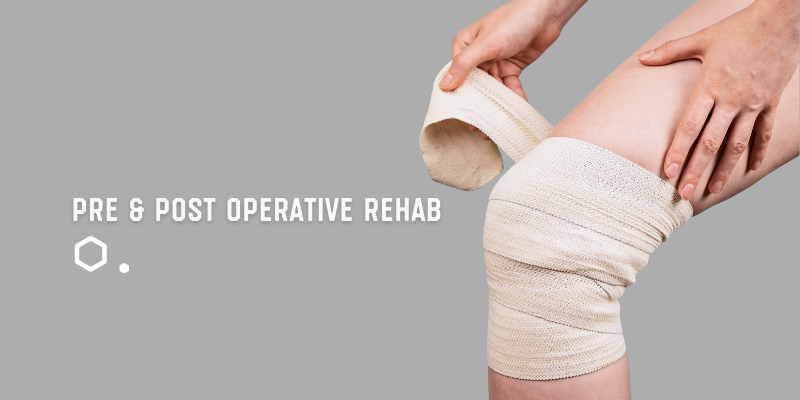By Jenna Bathgate
QubeCore Sports & Rehab Kinesiologist & Nutritionist
Surgery is a major stressor on the human body. Surgical interventions send the body further out of homeostasis (our natural maintenance mode) to improve the long-term prognosis of the patient. To ensure that we give our bodies the best chance for a quick and full recovery is to prepare and respond to the stressor accordingly.
Prehabilitation is a proactive approach to improving surgical outcomes. The primary goal of prehab is to enhance the body’s resilience through progressive improvements in cardiorespiratory fitness, strength, and metabolism. By improving these factors of health and fitness, surgical outcomes are improved and post operative complications are reduced.
Everyone’s prehab program will look different depending on their current fitness level and functional ability in respect of their injury. Prehabilitation programs likely include a combination of cardiorespiratory training, general or targeted muscular strengthening, as well as nutritional interventions and weight management.
Improved cardiovascular fitness enhances the body’s ability to deliver blood and oxygen to the affected tissues during the healing phase. The improved delivery of nutrients and removal of waste can decrease recovery times and improve patient outcomes.
The pre-operative improved strength and muscle mass from progressive training is beneficial for post-surgical outcomes. Post-operative bed rest and local immobilization can lead to a loss of muscle mass and function. By buffing up our pre-operative strength and muscle mass, we are shifting the healing curve upwards so that the lowest point of the curve is translated higher.
Once we have reached the lowest post-operative point and we begin the healing process, continued training can facilitate healing and restoration of function.
Tissue recovery is a long-term process and adheres to the SAID (i.e. Specific Adaptations to Imposed Demands) principle, meaning that the tissues will specifically adapt to the imposed demands. In other words, if you want to strengthen the body’s tissues, you need to demand that they withstand greater forces. By utilizing individualized progressive training programs and a multidisciplinary approach, patients can improve their post-operative outcomes and recovery of function.
Kinesiology and post-operative rehab improve the prognosis of patient outcomes via similar pathways as pre-operative care. A generalized fitness program will continue to improve the nutrient and oxygen delivery to healing tissues, improve weight maintenance and sleep quality which are all positively related to recovery and healing.
QubeCore Sports & Rehab offers Kinesiology services in North Vancouver for a wide range of conditions. To book your appointment with Jenna Bathgate, call 604.210.2274 or simply book online by clicking HERE.

